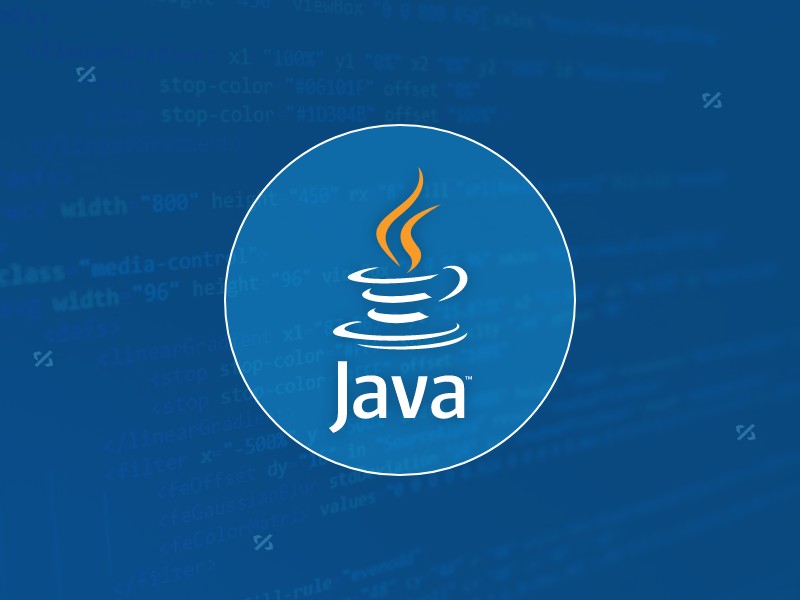Top 8 Java Use Cases in Software Development

The use of Java today spans across industries today, as the programming language offers an array of excellent features to build all-round applications. Robustness and Scalability define Java’s strength, and so it carved a niche for itself in the programming world.
Enterprises can define the development environment as per their need and address a problem with ease using Java.
As we move on to discuss the different areas where Java can be used in software development, we look at the parameters to evaluate the fitment of a concept for building with Java and the reasons that make Java a favorable choice for building diverse types of applications.
How to Choose What to Build with Java?
There are a lot of factors to consider when choosing the right Java development use-case but here we will focus on three critical elements when choosing Java development use-case.
- Requirements: First, you need to consider the specific needs of your project. Do you need a custom solution, or can you use an off-the-shelf product? If you need a custom solution, you’ll need to find custom java development services with experience in Java developing the type of solution you need. If you’re unsure what you need, it’s a good idea to consult with a few different services to get an idea of what’s possible.
- Budget: Second, you need to consider your software development budget. Java development use-case can vary widely in price, so it’s crucial to find one that fits within your budget.
- Project Scope: Finally, you need to consider the size and scope of your project. Some services may be better suited for small projects, while others may be better for larger projects.
When looking to develop a software application for your business, always choose the right Java programming services by considering all of these factors.
Why should one use Java?
The answer is straightforward. There is a reason why Java has become such a popular language in software development. We’ll look at the main reasons for the language’s popularity here:
- Cross-platform: Java allows you to develop an application on one device and run it on another. Thanks to the Java virtual machine.
- Simplicity: The Java language is simple to learn because it is similar to English and takes around only nine months for someone with no programming knowledge or experience to master.
- Reliability: Many large corporations prefer Java because of its high security. They create enterprise applications and are not afraid of being hacked or having malicious code interfere with them.
- Diversity: Many platforms and Java development environments are available to the developer. As a result, you have the option of using Java EE, SE, FX, or ME.
- A massive community: Because of the language’s popularity, many programmers are available to assist you with problem solving. As a result, there are numerous forums dedicated to Java. And if you run into problems or make mistakes, you’ll find a solution that could have been discussed five years ago.
Given these positives about Java, professionals keep learning and exploring Java for their evolving needs, as the programming language comes with many benefits.
What is Java used for?
This section of our article will concentrate on where Java has been used. Java, for example, is a versatile and powerful programming language that has been used to create some of the world’s most outstanding software, such as web browsers, games, and enterprise applications.
So, the applications of this programming language are limitless, but we don’t have enough time or words to cover them all. Java can be used in literally any industry and during the development of any application.
Here are a few of the numerous applications for Java-based software development.
Web Applications
Java is commonly used for developing web applications development due to its robustness and scalability. Some well-known web apps written in Java include Linkedin, Tumblr, and Pinterest. Furthermore, java’s ease of integration with other technologies makes it an ideal choice for developing complex web applications.
For instance, Hadoop, an open-source framework for processing large data sets, is written in Java. Spring, another popular java framework, is often used for developing microservices – small self-contained modules that work together to form a larger application.
Java Enterprise Applications
Using the popular Java EE environment, companies and large enterprises create their own workflows to meet their business needs.
Companies choose Java because its programming language is safe, reliable, robust, and stable. It is very easy to talk about Java security because many banking systems are built in this programming language.
Companies using Java include:
- Google.
- Spotify.
- Uber.
- HCL.
- Pinterest.
Mobile Applications
Java Micro Edition is the best programming environment for mobile application development and testing. Portability and platform independence allow you to create applications that can be used on a variety of devices, including smartphones, tablets, and embedded systems. So, the most popular mobile apps that use Java programming:
- Netflix.
- Tinder.
- QRReader.
- Google Earth.
- Uber.
Java’s main use remains in Android app development where you can build various types of native apps and their back-end in Java.
Desktop Applications
Desktop applications are one of the most common types of applications built using Java. Java enables developers to create highly functional and responsive user interfaces. Additionally, the platform independent nature of Java makes it ideal for developing cross-platform desktop applications. There are many popular examples of desktop applications written in Java, such as Eclipse IDE and Adobe Photoshop CC.
Scientific Apps
Java was widely used to develop precise scientific applications because the programming language allowed for large-scale simulations of scientific research and large calculations.
Orca, for example, is another example of what uses Java. It was created for scientists who work with ocean simulations. The benefit of creating this application in Java was the ability to use a single code base that could be processed by any computer.
Games
Back in the 2000s, perhaps, each of us, when launching our favorite games on old phones, watched the Java splash on the screen. Many of us have spent hours playing Doodle Jump, Gangstar 2 or Gravity Defied. In addition, we still actively use popular Android games, which were also created in Java.
Cloud Applications
Java is a popular programming language for creating cloud-based applications. Because of its portability and platform independence, Java applications can be deployed on a variety of cloud platforms. Java’s extensive library and tool set makes it simple to create cloud-based applications.
VR and AI Applications
Virtual reality (VR) and artificial intelligence (AI) are two cutting-edge technologies that are beginning to see wider adoption. Java is well-suited for developing VR and AI applications due to its powerful programming capabilities and platform independence. For example, the Java 3D API enables developers to create 3D virtual worlds, while the Java Neural Network Framework provides support for developing neural networks.
So, among the examples of programs that are created in Java, there are:
- Genetic programming.
- Search algorithms.
- Artificial neural networks.
- Multirobot systems.
- Solutions for machine learning.
In terms of augmented reality, developers are using Java to create Android AR games that millions of people can play. Because the vast majority of AR applications are created for mobile devices, Java will be one of the main programming languages in the case of AR, i.e. augmented reality.
AR apps now support a wide range of devices, including helmets, glasses, handheld devices, and even contact lenses. In many ways, Java enables you to create AR solutions that will work across multiple, often disparate platforms. Today, Java-based augmented reality applications are being actively implemented in clinics, banks, restaurants, and museums, among other places.
As it can be seen, there are numerous applications for Java-based software development. Java is a great choice, if you’re looking to develop a web, enterprise, or mobile app, or anything else, do connect with us.
Why Choose Java-Based Software Development?
Now that you know where Java is most commonly used, you should consider why this particular programming language was chosen. Some may prefer .NET development while others prefer Python but what’s Java that has been able to build such a huge community!
Some key features of Java include:
- Object-oriented: Java is an object-oriented language, which means that code is organized around objects rather than actions. This makes code more reusable and easier to understand.
- Platform independent: As mentioned above, Java can run on any operating system. This makes it a convenient choice for developing cross-platform applications.
- Secure: Java is designed with security in mind. It has built-in mechanisms to prevent malicious code from running on your system.
- High performance: Java applications are compiled into bytecode, which can be executed by the Java Virtual Machine (JVM). The JVM uses just-in-time compilation to optimize code execution, resulting in fast performance.
Java is worth considering if you’re looking for a versatile, popular, and powerful programming language for your next project. Connect with us to know more about how our experienced Java development agency could help you develop best-in-class applications.
FAQ
How is Java useful in real life?
Java is used in almost every industry, including finance, e-commerce, enterprise, mobile, distributed, and big data applications.
Do I need the Java license?
Since the April 16, 2019 8u221 java 8 update, all versions and updates for (java 8,9,10,11,14) are free for personal use and development. Any other use necessitates a Commercial License.
What applications use Java?
Top Mobile & Web Applications of Java are:
- Spotify.
- Twitter.
- Opera Mini.
- Nimbuzz Messenger.
Is it free to use Java?
Oracle’s latest OpenJDK release of Java is available for free under an open source license from jdk.java.net for personal, development, and other purposes.


